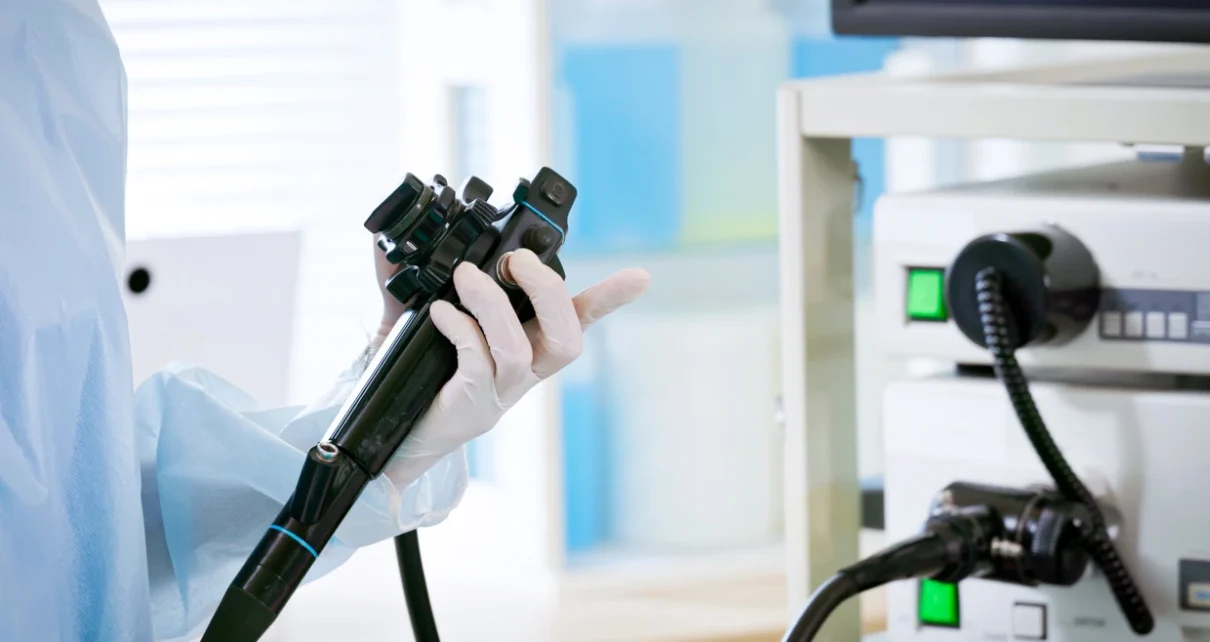Colon cancer is one of the most common cancers globally, and in many cases, it develops silently over time without obvious symptoms. By the time symptoms such as rectal bleeding, persistent abdominal discomfort, or changes in bowel habits appear, the disease may already be in an advanced stage.
This is where the value of early detection cannot be overstated. Early-stage colon cancer is far more treatable than later stages, and in many cases, can be cured entirely. Detecting precancerous polyps—abnormal growths in the colon that could develop into cancer over time—allows doctors to remove them before they become dangerous.
What Is a Colonoscopy and How Does It Work?
A colonoscopy is a procedure that allows a doctor to examine the inside of the large intestine using a long, flexible tube fitted with a camera. It is typically done under sedation and is both diagnostic and therapeutic, meaning it can identify problems and treat them on the spot.
During the procedure, the doctor looks for polyps or any abnormalities in the colon lining. If polyps are found, they are often removed immediately and sent to a lab for analysis. This proactive approach makes colonoscopy a powerful tool in preventing colon cancer, not just detecting it.
Colonoscopy Screening as a Lifesaving Tool
Colonoscopy screening at Curasia is recommended for most adults starting at age 50, or earlier for individuals with a family history of colorectal cancer or other risk factors. The frequency of screening may vary depending on the results of the initial exam and the patient’s health background.
One of the key ways colonoscopy screening saves lives is through its ability to identify polyps early. Many of these growths are benign but could develop into malignant tumors if left untreated. By removing them early, the risk of cancer is drastically reduced. According to global health studies, colonoscopy has contributed to a significant decline in colorectal cancer deaths over the past few decades.
The Silent Progression of Colon Cancer
Unlike some other conditions, colon cancer does not usually cause noticeable symptoms until it is well advanced. This silent progression makes proactive screening crucial. Waiting for symptoms could mean missing the opportunity to catch the disease in its early, more treatable stages.
People often avoid screenings because of fear, embarrassment, or misunderstanding of the procedure. However, modern colonoscopy techniques are safe, relatively quick, and cause minimal discomfort. The peace of mind that comes with a clean bill of health—or the opportunity to catch an issue early—far outweighs the temporary inconvenience.
Who Should Get Screened?
While general guidelines suggest that adults begin screening at 50, this age may vary based on risk factors. Individuals with a personal or family history of colorectal cancer, inflammatory bowel disease, or genetic conditions such as Lynch syndrome should consider colonoscopy screening at an earlier age.
In Singapore, colorectal cancer is the most common cancer among men and the second most common among women. As such, national screening efforts emphasize the importance of regular check-ups for those in the recommended age and risk groups.
Empowering Health Through Prevention
Healthcare today is shifting towards prevention rather than treatment. Colonoscopy is a prime example of this paradigm. Instead of waiting for colon cancer to develop and then attempting to treat it—often with invasive surgeries or chemotherapy—colonoscopy allows us to prevent the disease altogether.
This approach is not just medically effective but also cost-effective. Treating advanced colon cancer is far more expensive than a routine screening procedure. By prioritizing early intervention, healthcare systems can reduce both the human and financial burden of cancer.
Encouraging Open Conversations About Screening
One of the major barriers to widespread screening is discomfort talking about gastrointestinal health. Many people feel embarrassed or awkward discussing bowel habits, which can lead to delays in scheduling screenings. Encouraging open, stigma-free conversations can help normalize colonoscopy as a vital part of adult healthcare.
Doctors, employers, and health campaigns all play a role in promoting awareness and breaking down misconceptions. When people understand how straightforward and lifesaving a colonoscopy can be, they are far more likely to take that important first step.
Conclusion
Colonoscopy screening saves lives by identifying colon cancer and precancerous conditions early, when they are most treatable. Through increased awareness and timely action, many lives can be protected from a disease that often progresses without symptoms. If you’re of screening age or at higher risk, don’t delay—speak to your doctor about getting checked.





